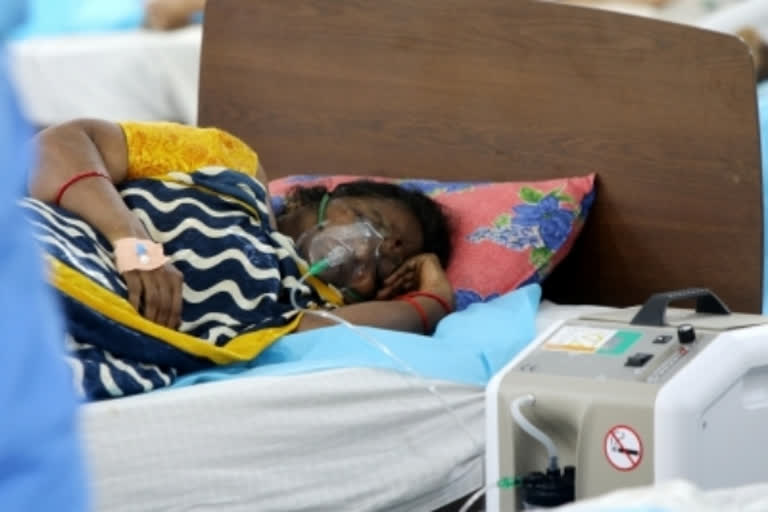Chennai: After facing acute shortage of medical oxygen with several hospitals in the state not being able to accommodate patients for want of oxygen beds, the Tamil Nadu state government has issued guidelines for optimal usage of oxygen.
The guidelines issued on Thursday is valid for Covid hospitals, Covid health centres and Covid care centres. It states that the hospital or ward has to be classified into various zones based on the need of the patient.
Read: 76 patients die due to oxygen shortage in Goa
In zone 1 patient, who don't require oxygen has to be admitted; in zone two patients with 1 to 5 litres of oxygen requirement are admitted; and in zone three, patients with 6 to 10 litres of oxygen to be admitted; in zone four patients who require 11 to 15 litres of oxygen are admitted; and in zone five patients who need 15 litres of oxygen be admitted.
Awareness boards mentioning "Do not waste Oxygen" must be prominently displayed in wards.
High flow nasal cannula devise which consumes enormous amount of oxygen must be used only in Intensive care units (ICU) and oxygen can be turned off when not in use.
Read: Water used in Oxygen humidifier could be the cause of Mucormycosis
Attendants are to be discouraged from entering the wards and maintaining the oxygen flow, according to the guidelines which also stressed on the importance of medical professionals to be custodians of maintaining oxygen levels.
Across Tamil Nadu, people are witnessing huge lines of ambulances with patients who require oxygen administration and who don't get oxygen beds. Several NGOs and industries have joined hands together to provide oxygen in novel measures like "Oxygen Pandal" and "Oxygen Buses" to help people get oxygen even before being admitted in hospitals.
IANS



